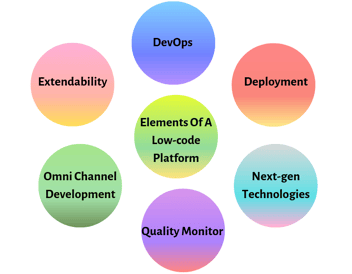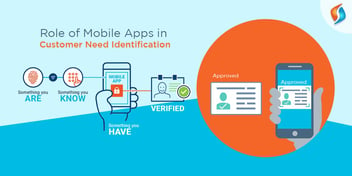- Blog
- mobile app development solutions mobile app development company mobile app development digital marketing services mobility solutions mobile app development services progressive web app development
Deciding Between Web Apps and Native Apps
Deciding between web apps and native apps boils down to balancing cross-platform accessibility and cost-effectiveness with the enhanced performance and functionality of platform-specific development. Consider project requirements and target audience for an optimal choice.

In 1994, IBM’s Simon was the first ever smartphone in the world. A far cry from the present version of iPhone or Android smartphones, Simon did not have any store to get apps from but had ten inbuilt features akin to modern day apps. A lot has happened in the world of mobile application development since then. It is a commonplace today to find organizations marking their digital presence through apps.
Marketers increasingly believe that apps help them connect with the target group and thus, are a great marketing tool. In the B2B space, enterprise mobility solutions provide organizations with a tool to help employees be more efficient.
However, the moment an organization decides to create their app, they face several decisions which impact its success. A wrong conclusion about the platform, technology or type can lead to wastage of both money and human hours.
Types Of Apps: Web Apps and Native Apps
There are two types of apps – native and web. Coding on Native apps is done in a specific programming language such as Objective C or Swift for iOS; Java for Android and Net for Windows. Native apps provide optimized performance in comparison to web apps. They work with the device’s operating system to allow faster performance.
Web apps in comparison are not as fast or reliable. They are the responsive versions of websites that would work on any device. They need a browser to run and are usually written in HTML5, JavaScript or CSS.
In the realm of web automation, a headless browser operates without a graphical user interface, enabling automated interactions with web pages, which proves advantageous for tasks like web scraping or testing web applications.
While they require less device memory, access to a reasonably fast internet connection is a pre-requisite or else the result is poor user experience. In spite of the challenges, progressive web app development provides the lowest cost of development due to a single code base, unlike the native apps where the app needs to be developed uniquely for multiple platforms.
Choosing The Right Type
To decide which type of app is most suitable for an organization, they need to make a comparison between both types. There are various elements to consider, as below.
App Development Process
Native apps are uniquely developed for each platform leading to higher costs as each platform uses a different programming language. Web apps generally use HTML5, JavaScript, CSS3 or any other language.
For native apps, there is a standardized SDK (software development kit) and development tools and processes, all of which leads to a relatively more natural mobility solutions. Web apps provide no such standardization or SDK kits, to begin with.
Accessibility
Native apps can be installed from the app store. Once installed an icon pops up on the device screen from where the user can access it. Web apps can be located on the browser when the user searches for it. They do not need a download hence and can be saved on the home screen if desired.
Native apps can access all the features and hardware of a device they are compatible with such as GPS, accelerometer, camera, etc. Whereas, web apps can access a limited number of native features. On the other hand, progressive web apps can update themselves with any user intervention while native apps need the user to download the latest updates.
Cross-Browser Compatibility
Native apps provide limited user access as they are made for a specific platform. This provides a limitation although it also ensures a refined user experience. Web apps are compatible as they are built using a widely deployed mobile technology. The app developer can create the responsive instance of the web app, publish it and the user’s browser window then displays it correctly as per the device’s screen parameters.
App Monetization
Progressive web apps can be monetized with digital marketing services through in-app advertisements, membership fees, etc. but need their payment system in place. For native apps, some device manufacturers lay restrictions on integration of services that enable monetization. However, the app store takes care of the payments through a revenue and commission model.
Efficiency
Native apps are faster, more reliable and provide a good user experience as they are specifically developed for the device. They can only be accessed via an app store, and hence users can be assured of their quality. In contrast, web apps do not have any authority controlling the app quality.
Their efficiency is linked to the browser performance and network connection as the data loads from a server. Both types of apps can work offline although web apps utilize cached data when offline. This limits the efficiency as not all parts of the app might be accessible.
Conclusion
In conclusion, native apps provide an efficient and personalized experience, but web apps aren’t bad either. With improved mobile app development services, web apps have proven as great uses cases in formats like social media when providing a truncated version of website essentials in app form.
It is prudent to consider the aspects mentioned above before deciding which one is the best for your business regarding time-to-market, target audience, budget, and product requirement. Once these thoughts are crystallized, it will become easier to visualize an app that reaches its full potential and meets business objectives.
Hire the best Mobile App Development Company!
We at Signity Solutions have years of experience working on mobile application development. So, if you are also looking for the mobile app development agency, we have the best mobile app developers in India at your service. Feel free outsourcing to India and reach us here, and we will revert at the earliest.




